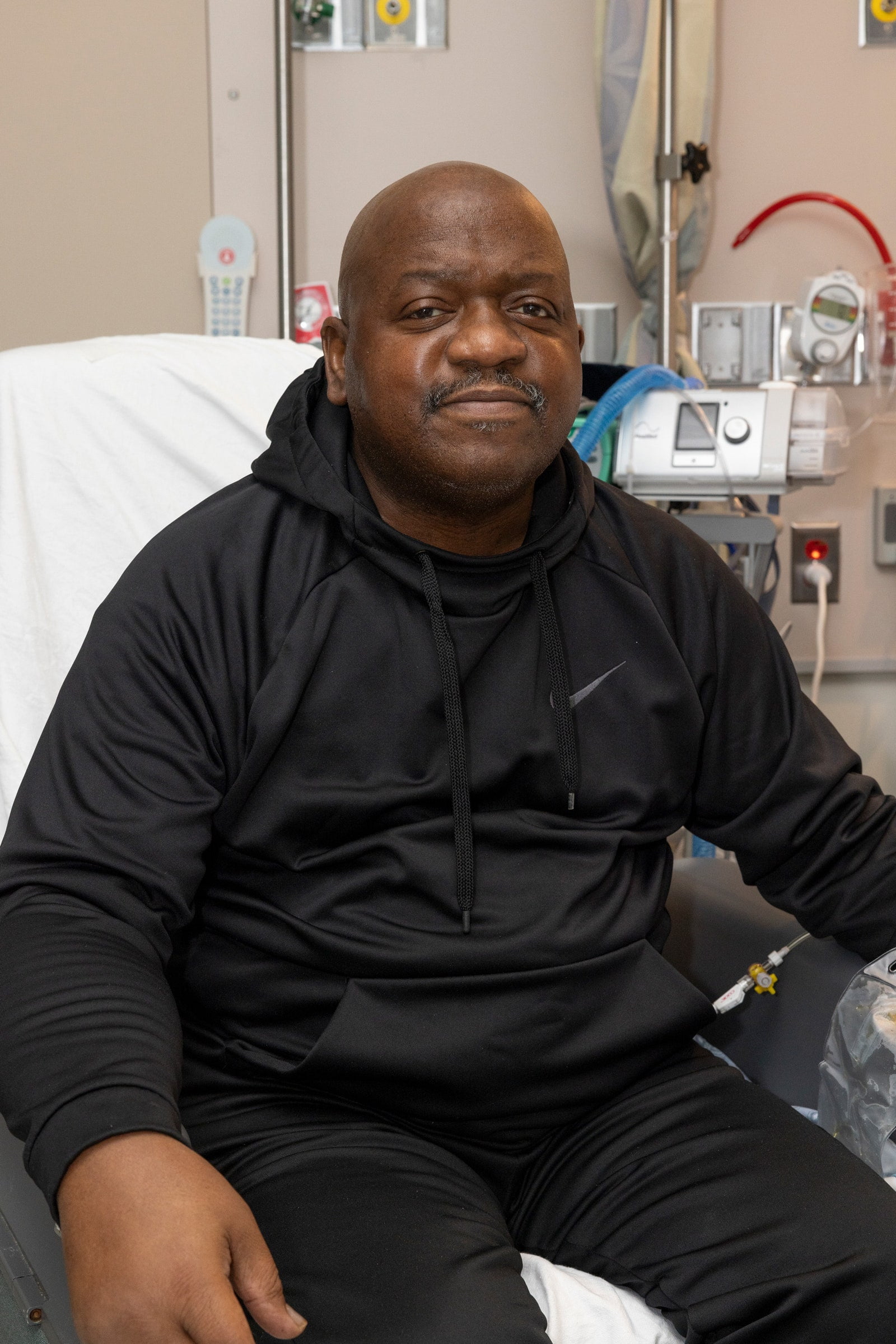
In Short
- Richard slayman achieves a medical milestone as the first person to receive a genetically edited pig kidney.
- This groundbreaking procedure at mass general hospital opens new possibilities in organ transplantation and medical innovation.
- Challenges and successes in xenotransplantation are highlighted through slayman’s journey, offering insights into the future of healthcare.
TFD – Witness history in the making as Richard Slayman becomes the first person to receive a genetically edited pig kidney, heralding a new era in organ transplantation. Dive into the intricacies of this medical breakthrough and its impact on healthcare innovation at Mass General Hospital.
Richard Slayman made history on March 16 by becoming the first living person to receive a genetically edited pig kidney. This week, the 62-year-old Massachusetts resident reached another milestone by being discharged from the hospital after his groundbreaking procedure. Now comes the hard part: making sure his transplanted organ keeps working.
At Massachusetts General Hospital, Slayman had undergone a four-hour surgery while receiving dialysis for end-stage kidney disease. According to a statement issued by the hospital, he described being able to leave the hospital as “one of the happiest moments” of his life. He’s now getting well at home. According to Slayman’s statement, “I’m excited to resume spending time with my family, friends, and loved ones free from the burden of dialysis that has affected my quality of life for many years.”
Because there is a scarcity of human organ donors, scientists are looking into pigs as a possible supply. Gene-edited pigs were used to transplant hearts into two people in January 2022 and September 2023, respectively. Neither of the two lived to return home from the hospital; they passed away less than two months later.
Slayman is doing well, according to his medical staff, and his new kidney is performing its job. He’s doing fantastically. He was only here this morning. Leonardo V. Riella, Mass General’s medical director for kidney transplantation, said in an interview on Friday that “he’s all smiles.” Slayman’s technique is a significant test of xenotransplantation, or the transfer of humans from animals to humans.

According to Riella, the researchers saw indications of rejection about a week after the transplant. Rejection occurs when the body’s immune system attacks the donor organ because it believes it is alien. Slayman was immediately treated by medical professionals using steroids and immune-suppressive medications.
Different kinds of organ rejection exist. The most typical is the one Slayman went through, which is referred to as cellular rejection. Patients need to take immunosuppressive medications for the rest of their lives to lower the chance of rejection, which can happen at any point after transplant.
Slayman is no longer in the hospital, but he will still require multiple in-person checkups each week so that medical professionals can test his blood and urine and keep an eye on his vital signs. In a month, if everything is as expected, Riella predicts that these trips will decrease in frequency.
Infection is among the most frequent side effects of transplantation, aside from organ rejection. When administering immunosuppressive medications, doctors must find a balance because giving a patient too much of a medication can leave them susceptible to infection and too low a dose can cause rejection. Strong medications called immunosuppressants can have a variety of negative effects, such as exhaustion, nausea, and vomiting.
Though both of the pig recipients of hearts passed away, Riella remains positive about Slayman’s transplant. He claims that Slayman was in quite good health prior to the surgery. Due to his uncommon blood type, he met the requirements for a human kidney, but he would probably have to wait six to seven years to receive one. Because of their extreme illness, the two recipients of pig heart transplants were ineligible for human organs.
Slayman is being treated by his medical team using an investigational medication called tegoprubart, which is being developed by Eledon Pharmaceuticals of Irvine, California, in addition to close observation and conventional immunosuppressants. Sepivrabart, which is administered intraperitoneally every three weeks, suppresses the immunological reaction against the donor organ by preventing T cells and B cells, two important immune cells in the body, from interacting with one another. Monkeys given gene-edited pig organs have been administered the medication.

This man’s out of the hospital a few weeks after having a pig kidney implanted is pretty miraculous,” remarks Eledon’s president and chief scientific officer Steven Perrin. “I didn’t anticipate arriving here so quickly.”
Additionally, Riella hopes that Slayman’s kidney will continue to work thanks to the 69 genetic changes performed to the pig that provided the donor organ. Organs from pigs are incompatible with human anatomy by nature. eGenesis, the pig’s supplier, employed Crispr to inactivate latent viruses that can potentially infect a human recipient as well as to add and remove certain human genes from the pig genome. Cloning is used to manufacture the pigs; an embryo is created from a single pig cell that has been altered by scientists. The embryos are cloned and transferred to the womb of a female pig so that her offspring end up with the edits.
“We anticipate that this combination will be the key to extending the kidney’s graft survival,” says Riella.
The number of changes pig organs require to survive in humans is a topic of discussion among scientists. Researchers employed donor animals with 10 edits—a technology created by United Therapeutics subsidiary Revivicor—for the pig heart transplants.
Another significant distinction between this treatment and the cardiac procedures is that, according to Riella, Slayman might return to dialysis if his kidney did fail. The beneficiaries of the pig hearts had no other options. He says even if pig organs aren’t a long-term alternative, they could provide a bridge to transplant for patients like Slayman who would otherwise spend years suffering on dialysis.
Despite all the unknowns, Riella adds, “we’ve gotten so many letters, emails, and messages from people volunteering to be candidates for the xenotransplants.” “A lot of them are searching for an alternative because they are having so much trouble with dialysis.”
The Mass General team intends to start a formal clinical trial so that more patients can receive kidney transplants from altered pigs. The US Food and Drug Administration granted them special permission for just one procedure. But for the time being, maintaining Slayman’s health is their first priority.
Conclusion
Richard Slayman’s successful transplant of a genetically edited pig kidney signifies a monumental leap in organ transplantation and medical innovation. As we reflect on this achievement, it underscores the potential of xenotransplantation to address organ scarcity and improve patient outcomes. This remarkable journey reminds us of the relentless pursuit of progress in healthcare, shaping a brighter future for patients worldwide.
Connect with us for the Latest, Current, and Breaking News news updates and videos from thefoxdaily.com. The most recent news in the United States, around the world , in business, opinion, technology, politics, and sports, follow Thefoxdaily on X, Facebook, and Instagram .
